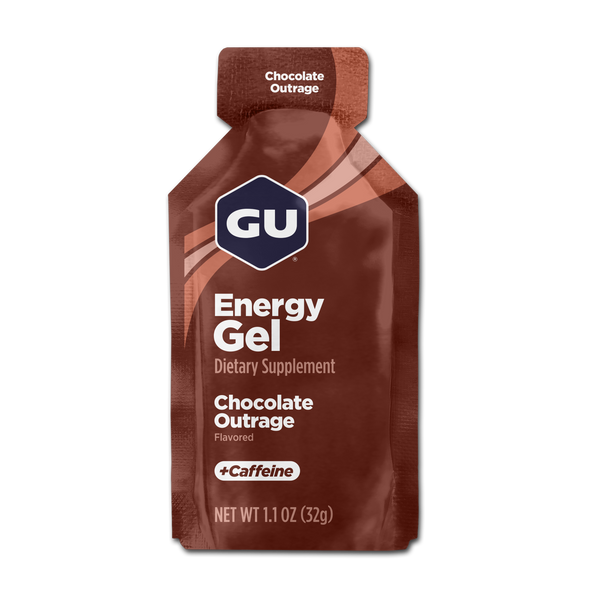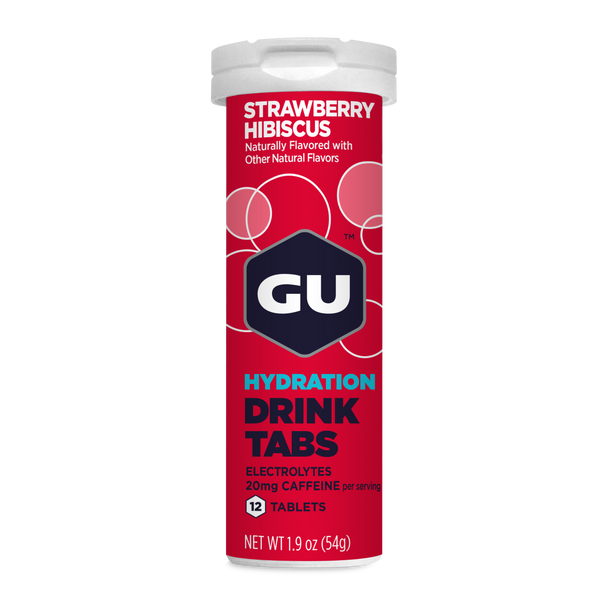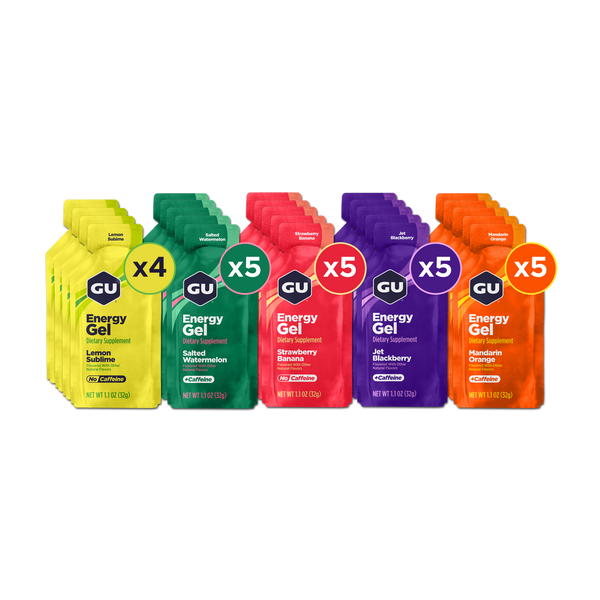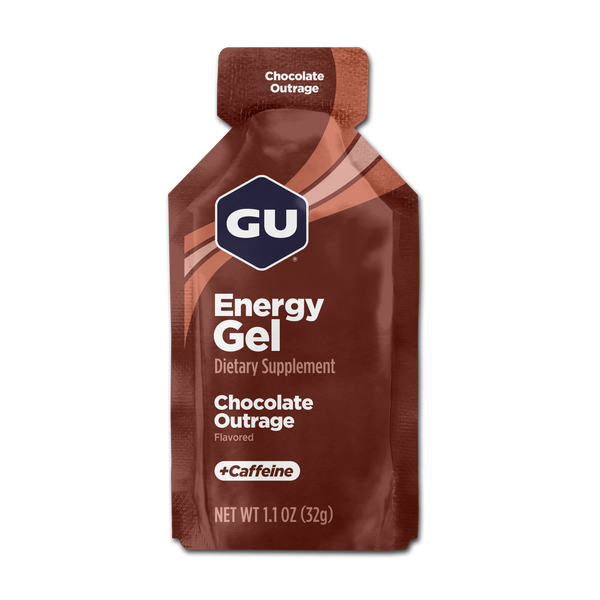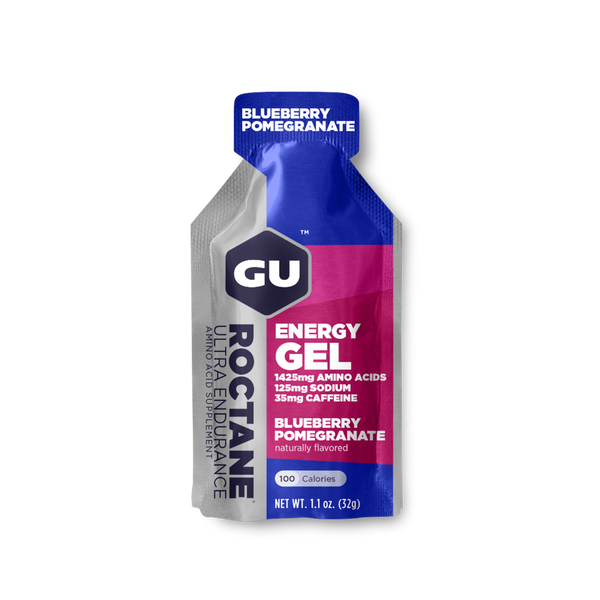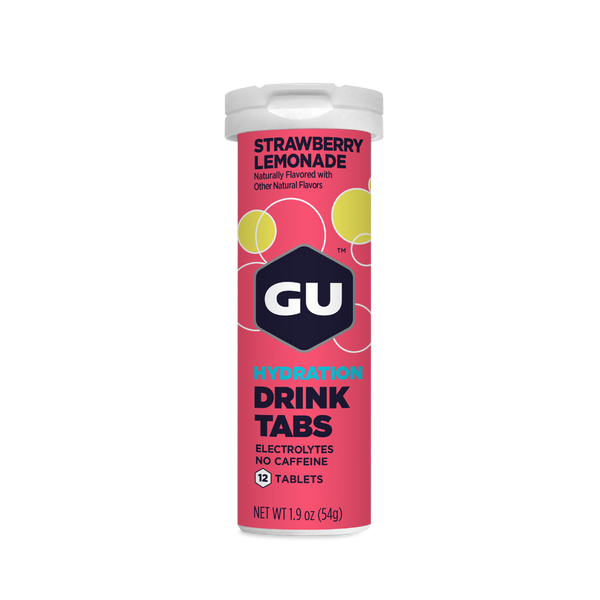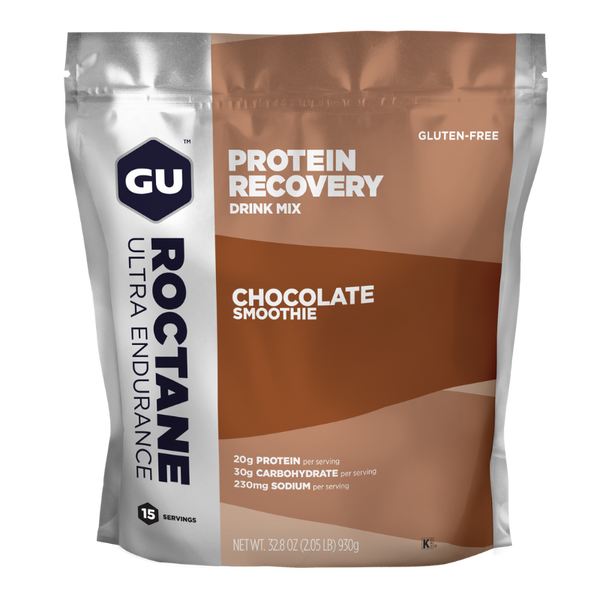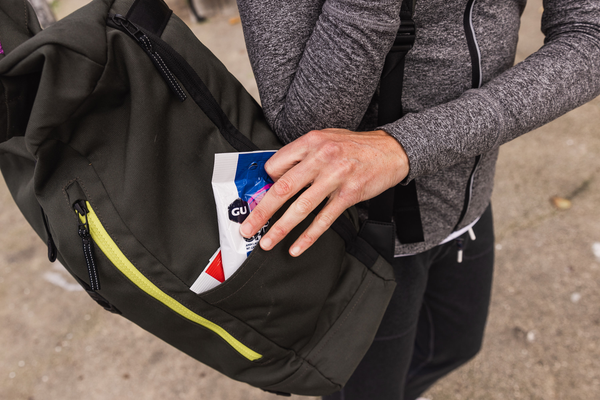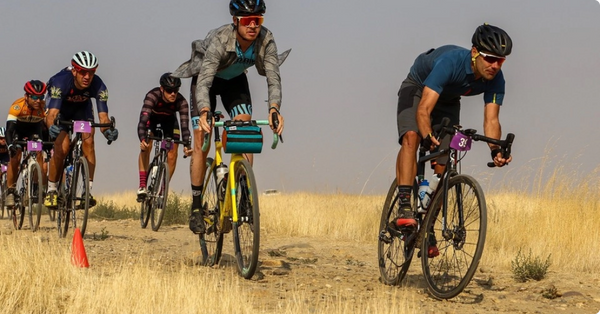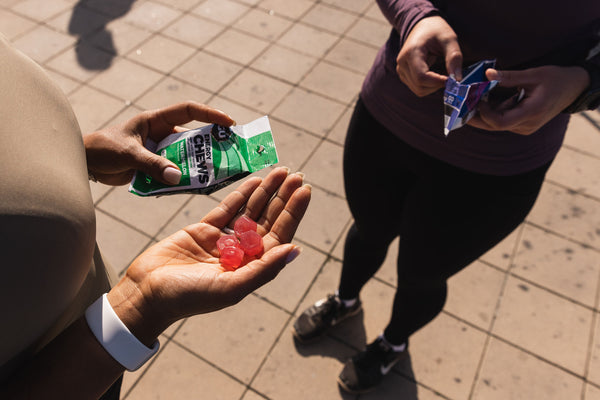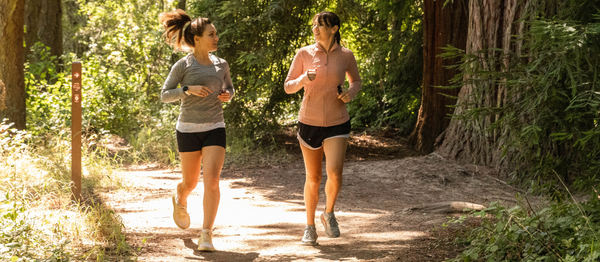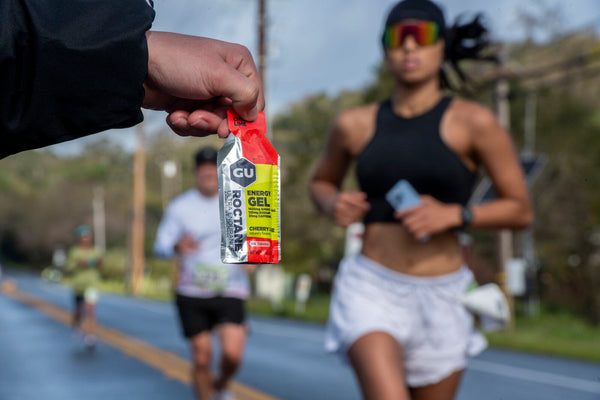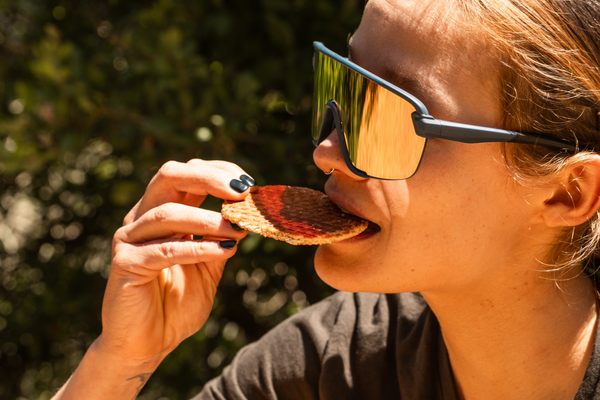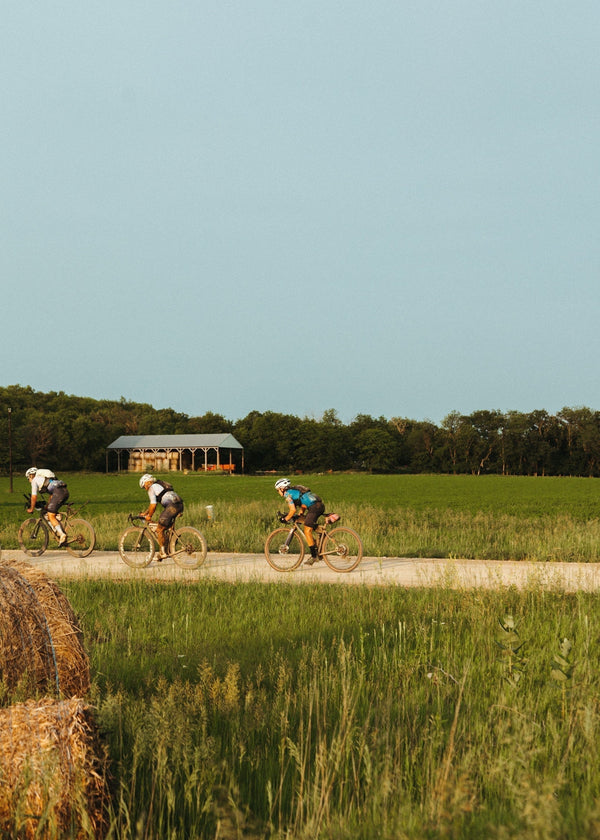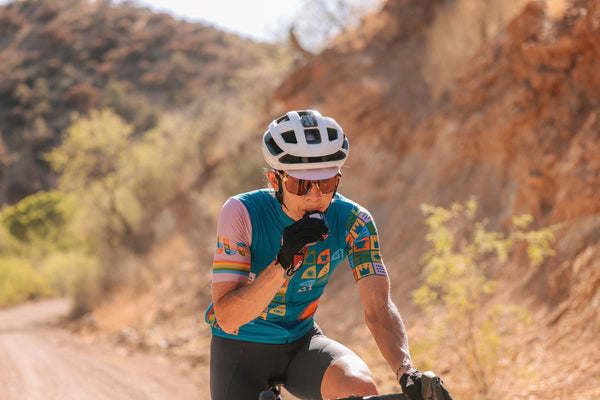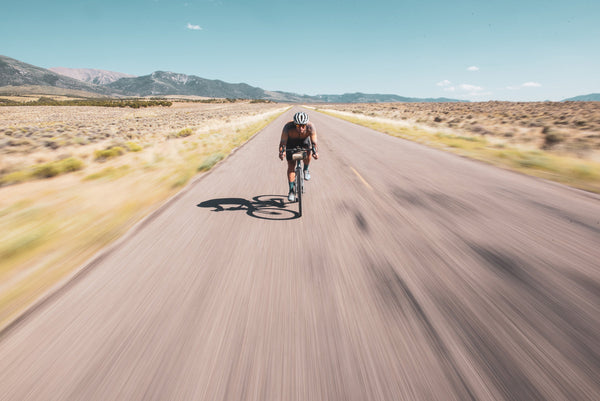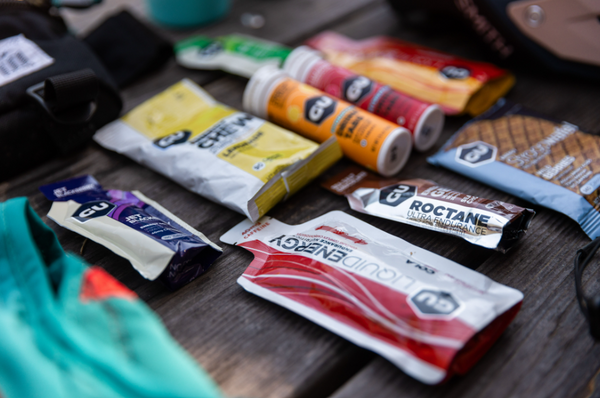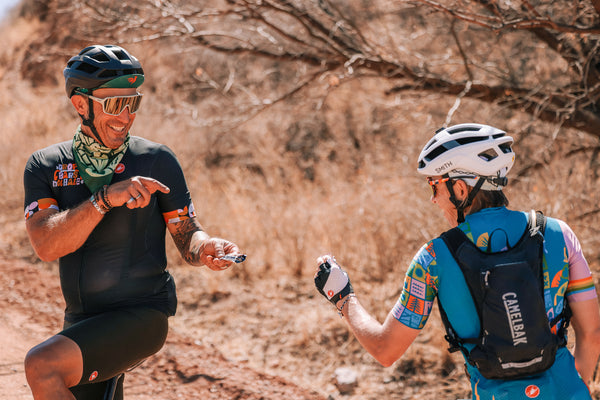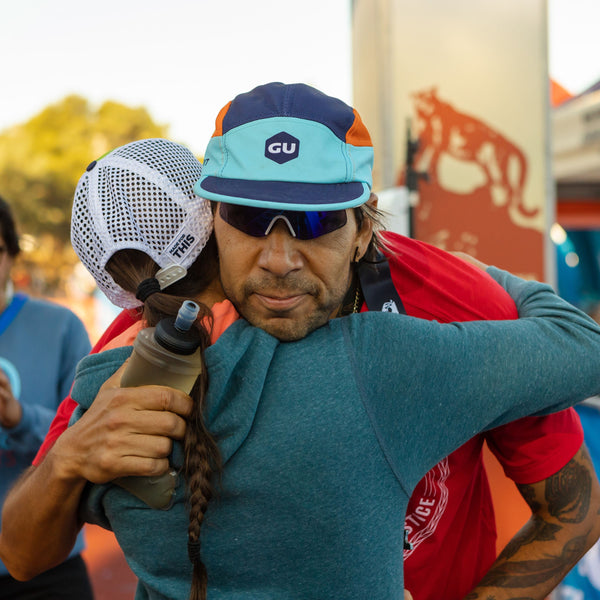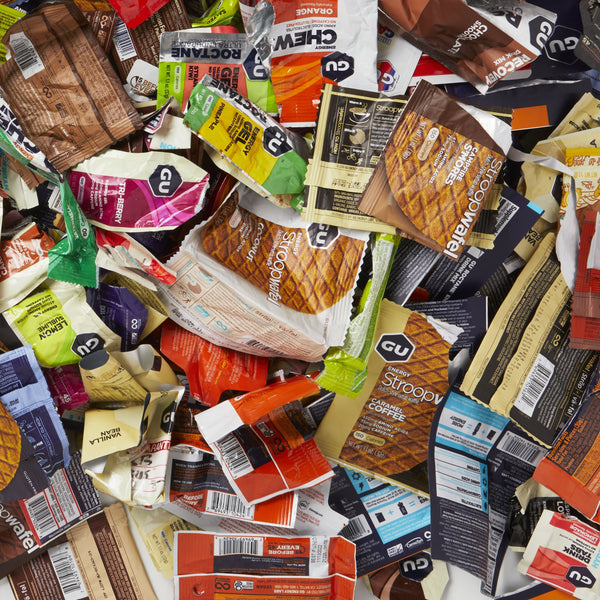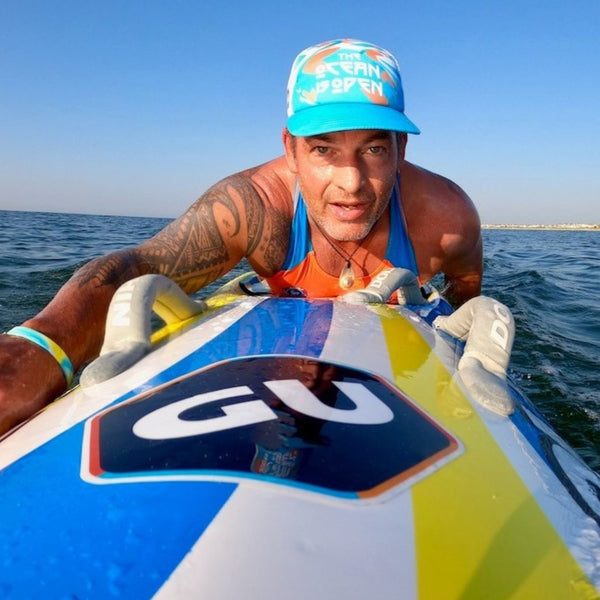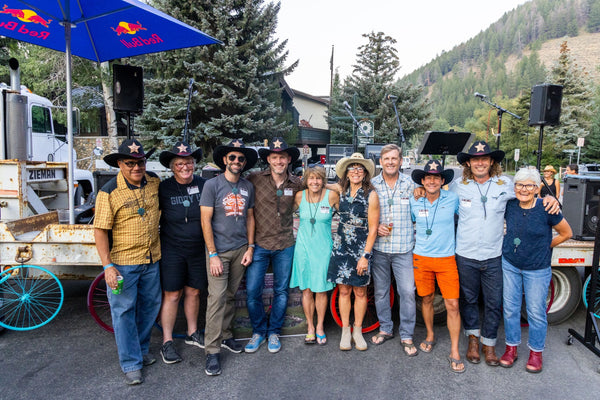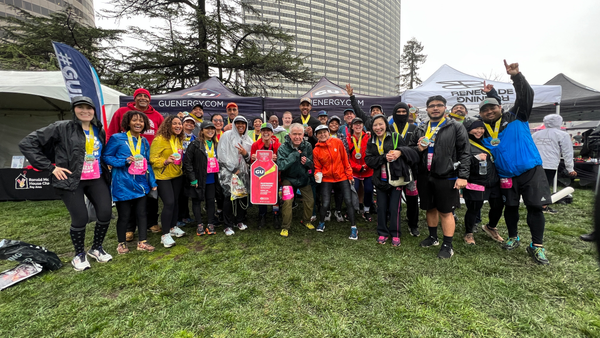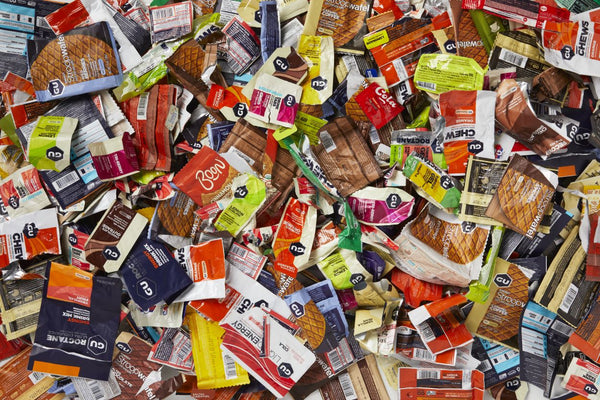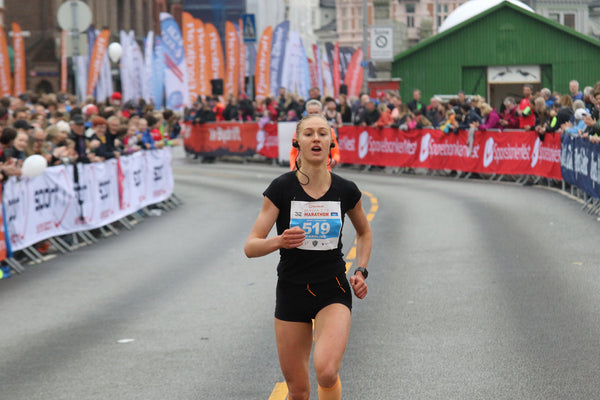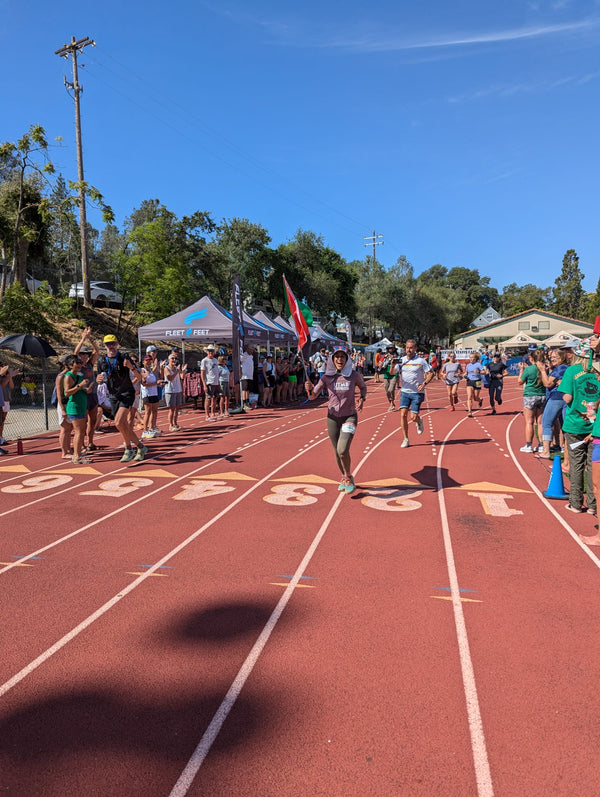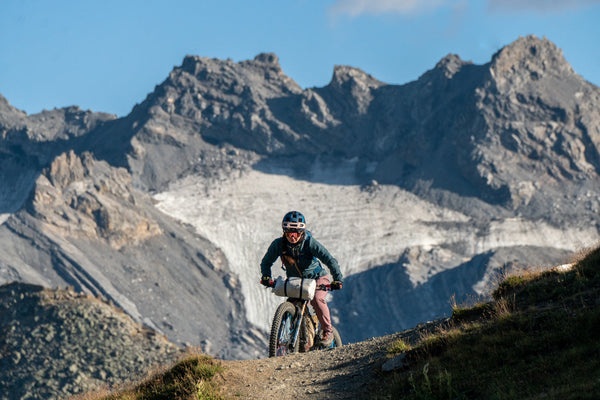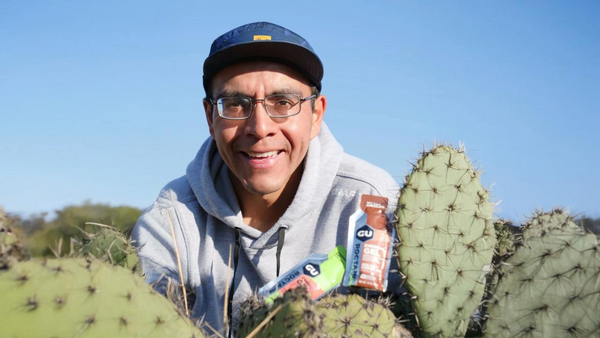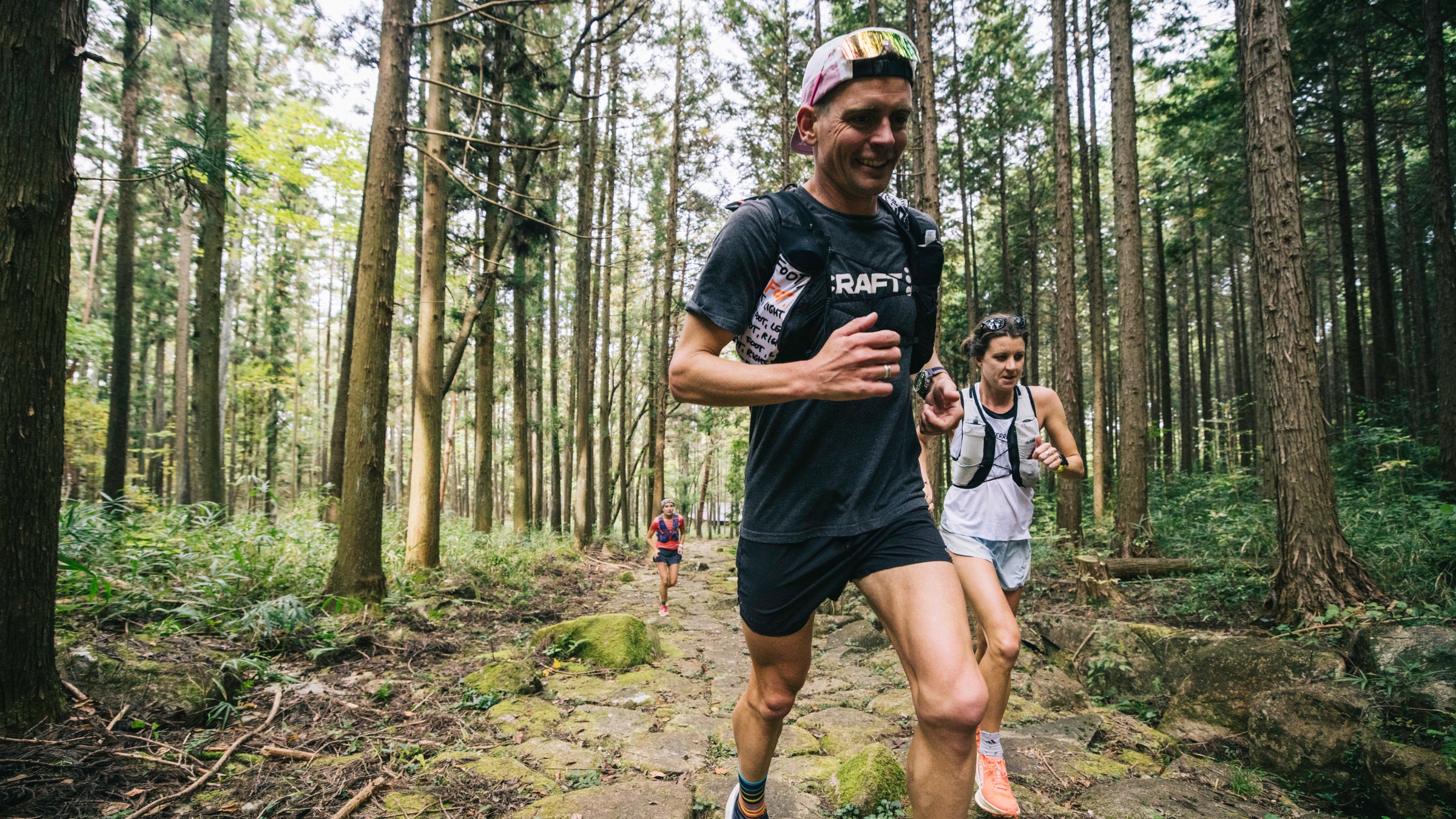GU Energy Labs athlete Tim Tollefson is one of the most accomplished athletes in the world of endurance running, with a 5th place at the Western States Endurance Run in 2021 and a 3rd place at the UTMB in 2017 being just two of the top finishes among an extensive list he’s has tallied over the years. But overshadowing the sizzling course times of Tollefson’s career has been the specter of his battle with Body Dysmorphia and OCD that, in recent years, he has become vocal about. GU Energy Labs Elite Athlete Manager Yuri Hauswald caught up with Tollefson to hear about his path to understanding, and coping with, body dysmorphia and about his new venture into event hosting with his Mammoth Trail Fest that’s held each year in September.
Yuri Hauswald: It goes without saying that I'm extremely honored to have your trust and friendship and to be having this very personal conversation about your journey with OCD and Body Dysmorphia, Tim. I've seen firsthand at your event this year—the Mammoth Trail Fest—that your story has affected others in a positive way and inspired them to come to your event. I'm hoping that our conversation today will help others out there who might be experiencing their own struggles. But before we dive into that, I'd like folks to have a deeper understanding of your athletic background. You've been called one of the most accomplished hundred-milers in the country, but for those that don't know your running history, can you briefly share how, when, and then why, you got into running?
Tim Tollefson: That dates back to sixth grade middle school time for me. How I discovered running was actually the Presidential Fitness Test. There was a timed one-mile run, and I discovered that I was OK at the running thing. That was probably my first memory of running for a distance or a time. I think that planted the seed. Then in middle school, running really started to take root.
I had come from a period of trying to find my way as a kid and struggling with fitting in. I had some episodes of bullying I had to deal with. Ultimately I found that running was a vehicle that allowed me to find a group that welcomed me. I think it was that social connection and trying to find my place in the world that really got me into it.
Hauswald: Am I remembering your history correctly in that you walked on at Chico State? For those that don't know, you ran for Chico State, correct?
Tollefson: High school was when I truly identified as a runner, or rather, I recognized that running was an important part of my identity. I got really into the training and tried to absorb and consume everything I could in running culture. I ended up having an OK high school career, but I never made the state meet. I wasn't recruited. Most people would say that in my senior year, I should have just hung it up and moved on like every other one of my teammates. But I had a friend up at Chico State who saw something in me and one of my coaches saw something in me. Between the two of them, they convinced the coach at Chico State to take a chance on me.
Because he didn't recruit me and he had a bad recruiting class that year, there was nothing to lose. He just said, "Come on in, kid and earn your keep." He let me take that chance and I spent my first year at university grinding away, trying to like, hang on to what the other runners were doing. I clawed my way, little by little over my five years at the university.
Hauswald: You've said in past interviews that it was your pursuit of perfection that triggered your OCD and that you felt the need to change your body to be successful. One manifestation of that was your compulsion to begin counting calories in 2003. For those that may be hearing this for the first time, can you define body dysmorphia and OCD and how they manifested and affected you and your running career?
Tollefson: OCD or Obsessive Compulsive Disorder is a cognitive disorder that is more or less defined by intrusive unwelcome and debilitating thoughts. To deal with those thoughts, you start to engage in compulsive behaviors. And the two of these, the obsessions and the compulsions, are linked through anxiety. So as you have that intrusive thought, it causes such anxiety or discomfort that you need to try to reduce it, and you engage in a behavior that gives you temporary relief. As that happens, you start to connect that by doing a compulsive act, you get some relief from the obsession. The problem is that the more you do the behavior, the stronger the link gets, and it actually just becomes the cycle that is self-feeding.
In OCD there are very clear pathways. Most of us think of germ OCD or harm OCD, someone's afraid of hurting other people or themselves, or you have to wash your hands a bunch of times or flip the light switch on and off. Those are compulsive behaviors that surface to deal with some sort of intrusive, obsessive thought. And body dysmorphic disorder is essentially labeled an obsessive compulsive related disorder. So it's under the OCD umbrella, but it focuses specifically on body image or a perceived belief that there is a flaw in yourself. And much like the harm OCD or the germ OCD, this is a body OCD where you're so fixated on one thing that is causing you such anxiety that you have to engage in some sort of behavior to make yourself feel OK.
With body dysmorphia, it's much more common to have people fixate on one part of their body. For men, it's more common to have a subset of this where you think you're not thinking you're big enough—like for gym goers—for instance, having the thought, "My calves aren't big enough, or my chest isn't big enough." You fixate on that one thing, and no matter how many thousands of push ups or bench presses you do, it's never enough. Mine falls more into not thinking I was ever thin enough or I didn't look like a runner and I fixated on my image there. But the more I've started to unpack it, I have realized how it comes out of a deep seated fear of judgment.
It runs deep across all domains of my life—this fear of judgment. I think with the body dysmorphic disorder, as I got into running the judgment piece became more present and more overt because of the way people spoke about their bodies or just the general culture around distance running and endurance sports. Running can be laden with a lot of toxic, unhealthy, unproductive verbiage and terminology. Because I am someone that really held things close to my chest and was afraid of ever speaking out or asking for help, those thoughts and behaviors left unchecked got deeper and ingrained into my mind and body and it became really hard to finally break out of it.
Hauswald: And that manifested in you getting out your phone calculator and calculating the caloric value of what you were eating, correct?
Tollefson: I have a number of different compulsive behaviors that I engage in. One of them is the calorie counting. There's this fear of weight gain and how I chose to address that is to reassure myself that I didn't eat too much, so I'd count my calories. That began in a sports nutrition class at university. It was a harmless three-day food diary that we all had to log. For me, it was an introduction to a tool I could use to try to deal with these unwelcome intrusive thoughts. It laid the groundwork for a very reductive sense of treating everything as calories in calories out.
Those were some of the general themes that were taught back, back in the day. Fitness was a simple equation of calories-in-and-calories-out and treating yourself like a machine versus recognizing the nuance of how individual our relationships with food are outside of just burning calories. So I latched onto that where the calorie counting became something that was omnipresent. That was probably my most significant intrusive thought that led to me counting hundreds and hundreds of times a day, because the more you do it, the worse that connection gets and you don't trust it. So you have to reassure yourself even more. And the reassurance seeking really creates this prison cell that you can't escape and you're building yourself into the prison the more you engage with it.
Body checks is another thing—that could be weighing myself dozens of times a day or checking my appearance in the mirror. All of those behaviors, what they do is they pull you out from being present in the moment. You aren't able to be truly with someone in a present state to communicate if you are constantly in this fight-or-flight sympathetic nervous system zone where you're so dysregulated that everything is perceived as a threat. You have to reassure yourself that you're safe. You can't just be present and calm.

Hauswald: Your sponsor COROS made an extremely powerful video, I think two years ago, about your personal struggles called "What Goes Unsaid," that laid your soul bare to the world for those who might be suffering or dealing with similar issues. Can you share how you first sought help and then the redemptive and restorative powers that came from finally giving voice to your struggles and what it's been like to know that your words, your opening up, has helped others. And I just want to say that I witnessed personally at your event this year how your words inspired others and actually made that introduction at the finish line to that gentleman who I had spent the afternoon working with at the aid station.
Tollefson: That highlights how this is all worth it. I thought "Wow, this actually has a real life impact." Seeing his face and him start to tell his story hammered home, how important is that we share in this. There's nothing more connecting than the humanity of shared suffering or struggles that we all have. Getting that reflection out of that experience was absolutely mind blowing.
A lot of people pride themselves in being determined or tough or gritty, and I think that serves us well in endurance sports. You tend to need to have a level of disregard for your wellbeing so you can just get through something uncomfortable and keep going because the patient ones and the ones that endure are gonna be the ones that are most rewarded. But I took that into all aspects of my life where I would keep my head down and grind. And it got to a point where I was successful enough in holding things together, but I always felt like I had a dual life going on where I was trying to manage two separate realities at once. And it came to a point where I realized I wouldn't survive the trail I was on if I didn't change something. I was so unhappy, so lonely and isolated, so unfulfilled and suffocating in my own thoughts that if I didn't ask for help or at least change the direction of what I was doing, I had a good idea of where it was gonna lead.
That started to scare me. I didn't trust myself and I didn't see a life being lived the way I was doing it. So with the encouragement of my wife Lindsay, I started some formal therapy to try to just talk about something. Just the act of talking really was powerful and getting something out of my own head and verbalizing and giving voice or naming certain things. I found a lot of power in that. What's been fascinating is that since I've opened up and talked about it, I then went through maybe an 18-month period where I almost fell through the cracks. I was in the middle of changing jobs and I lost my health insurance and I lost access to my therapist.
I was white knuckling these resources I had at one point. But just in the last couple months I've started with a new practitioner and started on something called PVT or Polyvagal Theory, and it's been really mind blowing to experience how powerful this next step of recovery has been. It's given me a lot of hope that the more I commit to the act of recovery and the more I work on these tools, that there will be even greater gains made in the future. Recovery, like any habit, is only as good as how much practice we put into it. So I try to choose every day to work on recovering, and make it intentional where I try to be mindful of what I'm doing.
Hauswald: What strategies do you think people and brands can employ to affect positive change in this area so that athletes have better support for healthy nutritional choices in the future?
Tollefson: The first thing I would say is that I think universally we should all stop commenting on athletes' bodies and appearance. It's a non-negotiable that we should just really embrace because there needs to be a separation between performance and appearance. It's a very reductive view that I have still fallen victim to—thinking that looking a certain way will lead to a certain outcome. That's a systemic thing that is ingrained in our society.
Your body is going to adapt to the demands of the sport you're doing if you are nourishing it, nurturing it and treating it respectfully the way you should and training properly. Your body will find its ideal state for performance without you manipulating it yourself. I still fall victim to trying to manipulate my body to meet the demands of running where I should be focused on the running and then make sure I'm nourishing my body to meet the demands of the running and not manipulate it. I credit the dietician I work with right now, Maria Dalzot, she's a registered dietician, she explains that sex sells and that it's easy to fall victim to marketing. Athletes definitely need intuitive eating, but boiling that down into like catchphrases is a little harder, sop we latch onto the marketing tools that are spun on Instagram. Changing the narrative around "good" and "bad" foods or putting value and judgment on food, nutrition or behaviors, is doing athletes a disservice. Instead we should collectively be thinking about how we intuitively educate ourselves and athletes on how to listen to the internal cues of what our body needs and what our bodies tell us.
So much of the information that comes to our brain is from our body. But if we're still fixated on the external like counting calories or counting protein, fat and carbohydrates, I think it reduces things into machine-like operation and it takes out the nuance and the emotion of what food is to people.
Hauswald: I'm curious, did you ever have anybody approach you in your career and say, "Hey, I'm worried about you." And then the second part of my question is, "Would you have been receptive to a sponsor or someone like myself stepping in and saying something?
Tollefson: I think those are the important questions and it's about conversation. I did have a coach in college approach me, because college was when I had my worst bout of anorexia. I was very unhealthy and thin to the point where teammates and coaches were commenting on how unhealthy I was looking. I was approached about it and asked, "Hey, are you eating enough?" And when that happened, I went into the typical addict's mind of denial and anger and. I thought, I've got this under control. But I think that it's still important to have that conversation because otherwise you potentially are enabling someone engaging in bad behaviors.
I think one thing with that kind of conversation that would be really helpful is probably also recognizing that it's a constellation of different behaviors or attitudes. It's important to understand as someone who is trying to help another person that we also need to check or challenge those issues in our culture so that it doesn't foster or breed into unhealthy relationships with food or fueling.
It can be as simple as not asking people "What are you eating?" Just say, "How are you eating? Are you eating regularly? Are you eating enough?" You don't need to ask, "How many calories did you have? Did you have 20 grams of protein?" I think we need to not be afraid of offending, but coming to someone that you might have concerns about out of a place of love and compassion because the person that is in that state, whether they know it or not, needs to be made aware that their behavior isn't sustainable or healthy long-term. I think addressing it is important and not enabling someone inadvertently by just looking the other way.
Hauswald: You've had some stunning results in your two-decades-long running career—the 2012 and 2016 Olympic Marathon trials, the 2014 US 50K Trail Champion, third in 2017 at UTMB where you broke 20 hours, fifth at Western States in 2021—but let's talk about the 2022 Western states, a day that didn't go as you had hoped, a day that didn't land you anywhere near the podium, but maybe I'm guessing a performance that you're most proud of. Can you share that day with us, your struggles, what you learned and how it impacted you?
Tollefson: That definitely was an important day in my life. To set the stage a bit—the year before in 2021, I ended up fifth and objectively that was a good day. But I walked away from that really frustrated with myself because I had a body that was very prepared in 2021 and my body did not give up, my mind gave up and I completely cratered mentally. I eventually turned it around and had a good outcome. In contrast, in 2022 I had a body that completely gave up on me, but my mind did not. So despite the outcome in 2022 being far from the objective success of the year prior, I was so much more proud that mentally I was able to dig myself through the trenches and not give up on what I knew to be possible.
That gave me a lot of pride and it highlighted that I was so broken down physically in 2022—with the heat and all these things that led to me being completely shattered—but I accepted that I needed help from my crew, my community, all the support volunteers, the aid stations and we pieced things back together into something much more beautiful. That was something I was really proud of, and it reminded me that that's what life is. You dream of the dream day, you train for the dream day, but the dream day doesn't happen. We're gonna spend all of our days in the muck and live through the ups and the downs. It's about realizing how to navigate that and piece yourself together or piece others around you together.

Hauswald: You had a really powerful quote in one of your interviews that went like this, "Let the community love you." So, I want to talk about the power of community and how that's deeply connected to the event you created: Mammoth Trail Fest. The event that has seen meteoric growth in just two years. How did this event come to be? What inspired you to create it? What have been some challenges, some successes, and finally, what does the future hold for you and your event?
Tollefson: The initial seed for Trail Fest was planted on my first trip over to UTMB in 2015. I went there as a starry-eyed young pro and was blown away by the energy around the event. Over the years I started thinking about things that I liked about that event and things I didn't like. And I started piecing together my favorite pieces of all events I've been to around the globe and decided that Mammoth is ripe for holding an event. We don't have any endurance ultra races, and it's a place I've lived for over a decade. I had this vision of sharing our local area in a way that showcased our community. That was the genesis for the event; we wanted to share our community with people and it would be built from the community, for the community.
It blew me away how well it was received in the sport, the community, and how people have shown up and really wanted to make it their own. It has filled me with gratitude that this event exists. For a long time, I didn't really feel like I knew what my purpose was in the world. I feel like with Trail Fest, it finally has connected all of my passions and all of my skill sets and all of the people I enjoy being around in one place. It's an experience that has been completely life changing and allowed me to get outside of my own identity as an athlete and focus on others. That's been a huge turning point of focusing the lens on others and being in service of others.

I've recognized through recovery that I've been chasing community my entire life. I think we all need food, shelter and community. I was chasing a spot in the community while not recognizing I was always part of the community. And so we're trying to make Trail Fest a welcoming space for anyone and everyone to come. That's one of our big goals moving forward—connecting as many groups of people as possible to give them the ability to come, connect, grow, and experience the transcendent nature of life on the trail. That's our mission going forward, providing a community where everyone feels like it can be their safe space. A lot of that was self-serving. I was looking for a safe space, and I created the space I wanted to be a part of. My hope is that as we get more people involved, everyone feels that way. There is no shortage of challenges. Getting an event off the ground in the US is hard, from permitting to getting all the approvals, but thankfully we're dealing.
A huge challenge was that I have lived a life full of fear of failure, and it's been to the point where I won't even do things if I don't think I have a chance of success because I'm afraid of failing. Trail Fest has forced me to come to terms with that. I use the analogy with our team that we're building the plane while flying. We don't always know what we're doing, but we know what we want to do and where we're headed and we're gonna figure it out. We're gonna grow and we're gonna be able to refine and hopefully welcome new people to the space and be transparent about what we're doing and learning.

